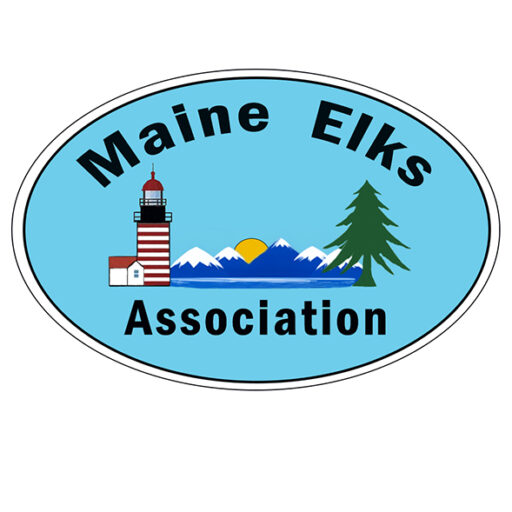On November 17, 2024, one hundred Maine Elks attended the association’s first Lodge Management Seminar to better understand the business side of an Elks Lodge. The event was held at the Waterville Elks Lodge and began at 9 AM. The first speaker was Grand Trustee Wayne Cotterly who welcomed all that attended and talked about the structure of the Elks organization. He said it was important that Lodge Management, which included the Lodge Officers, Board of Directors, House Committees and Governing Bodies understand the system within which they operate. He covered a brief history of the Elks, the governance structure of Grand Lodge, the State Association, and the local Elk Lodges.
Next up was Past State President Andy Bolz who spoke about the Board of Directors, covering their duties and responsibilities as well as the accident prevention program and insurance programs of the Grand Lodge. He explained the requirement for all Elk Lodges to be overseen by a Board of Directors, as all Maine Elk Lodges are incorporated. He went into detail about the Elks Property Plus insurance program which covers fire and theft, as well as the Liability Insurance program which covers liquor liability and coverage for other types of accidents that may occur on a Lodge’s property. He then went on to talk about the accident prevention manager position and the accident prevention program to help Lodges reduce their exposure to accidents and liquor liability. He rounded out the talk on how communication and the importance of Lodge management to communicate with the Lodge membership on a regular basis.
Next up was District Special Representative Scott Monroe talking about Club Management. The members attending appeared to be very interested in this topic, as there were many questions asked. The segment covered the forms of club management, duties and responsibilities of house committees and governing bodies, suspension of club privileges for members who violate house rules, and the policies and procedures that club management should implement to make sure their employees are doing what is needed to get the job done. Hiring and labor practices were covered as well as disciplinary action taken against employees. Finally, Scott spoke about financial considerations of club management. This included information on cash handling, purchasing, inventory control, and calculating and controlling of the cost of goods sold, whether that be for products, labor, or entertainment. He pointed out that to make things easier for club management across Maine, the State Association has made available an Excel Spreadsheet which allows club management to enter their information from their profit and loss statements to quickly determine their cost of sales information. The calculator can be found here: Cost of Sales Calculator.
After lunch, Grand Lodge Committeeman Bruce Brunelle spoke about financial reports. He covered the Balance Sheet, and the calculations that can be made from that financial statement to determine the Lodge’s financial position. He then covered the importance of the Profit & Loss Statement which shows whether a Lodge is making or losing money on their business operations. He talked about sales tax, and how to make sure that Lodge is not paying sales tax twice when reporting to the State of Maine, as sales tax is built into the price of each drink. He covered Budgeting and using the Budget vs. Actual report for management to keep their budget to what was approved by the membership. Handouts were also offered which contained the formulas for making the various business calculations, and explanations of what can be done to take corrective action if needed.
Past State President Frank Ricker spoke next about the most frequently used statutes. This included information on Roberts Rules of Order. A handout was made available on the voting requirements and the types of motions that can be made at a meeting. He talked about Flag Day, the election of officers, duties of the secretary and treasurer, the vacating of officer positions, honorary life membership, Lodge meeting dispensations, Lodge choice to vote by secret ballot, and the building application requirements.
Wrapping up the seminar was District Special Representative Claris Ranger who spoke about the issue/complaint resolution process. He talked about the chain of command within the Lodge and the Grand Lodge, and how issues should be resolved locally at the local Lodge. He also covered what types of issues can be brought to the Grand Lodge as well.
If there are any questions from those who attended, or wish to provide feedback on the seminar, feel free to reach out to MEA Learning Seminar Chairman Bruce Brunelle,
